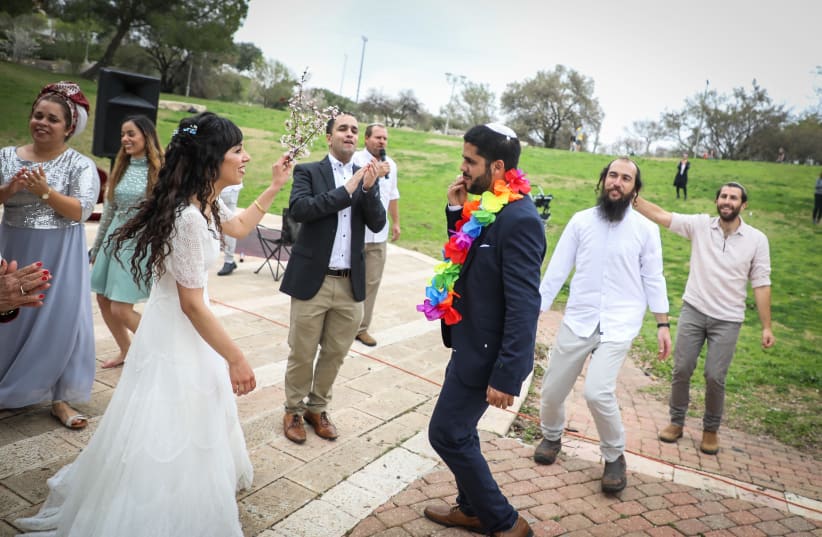On the matter of religious freedom and conscience in Israel, 83% of Israel's Jewish population supports religious freedom, while 80% of secular Israelis say that they would vote for a political party which commits to promoting religious freedom and equality in the country. In the context of this part, 62% of respondents said they supported Blue and White using their powers as part of the coalition agreement with Likud to block the passage of legislation that goes against this principle of religion and state.
On the controversial topic of Israeli Supreme Court powers, which has gained more notoriety in recent years, 65% of Israeli oppose an override clause that would see the Knesset have the power to negate court rulings via a vote. Broken down by party, 38% of Likud supporters said they supported an override clause, while 79% of Blue and White voters were opposed to such legislation, with only 7% support.
In terms of trust in government institutions, a plurality of 36% said they trust the Supreme Court, while 11% expressed this same view in the Chief Rabbbinate. Only 8% of respondents said they trusted the government, and 4% expressed trust in the Knesset. When it came to sharing the civic burden, 20% of respondents accepted the demand from Ultra-Orthodox parties to exempt yeshiva students from military and civilian service, in addition to a majority of 64% who reject ultra-Orthodox parties’ membership in the governing coalition.
Respondents were also asked about internal tensions in Israeli society, with 76% saying that the disputes of most importance are between the Israeli Right and Left, and 69% also highlighting religious-secular tensions in the country. It should be noted that 51% of Israelis stressed the Right-Left divide as the most severe conflict in the country, while 29% said that the religious-secular divide is the most central internal tension.
Hiddush also conducted a demographic analysis of the respondents. With regards to religiosity in Israel, 47% of Israeli Jews define themselves as secular, 18% as traditional-not-religious, 11% as religious-Zionist or "Chardal," ultra-Orthodox religious-Zionist and 10% as ultra-Orthodox.
Shabbat observance in Jewish Israeli society was also viewed, with 25% of the Israeli public observing Shabbat according to Halacha (Jewish religious law), 20% partially observing Shabbat (lighting candles or reciting prayers), and 34% considering the day to be special, and 21% consider it a regular day off.
A majority of 71% of Israeli support public transportation on Shabbat, including 35% of religious-Zionists. According to political party, 65% of Likud and Yamina voters, and 95% of Blue and White voters expressed support for public transportation on Shabbat.
On the topic of marriage, 65% of respondents support equal recognition of all forms of marriage, civil and religious included, in addition to the more liberal streams of Judaism, such as the Reform and Conservative movements. Also broken down by political party, 55% of Likud supports, and 47% of Yamina supporters expressed freedom of choice in marriage. About half of Israelis would choose an Orthodox marriage if given the choice of other options. Among the secular public, 19% said they would get married under the Chief Rabbinate if given the choice.
In the case of Jewish status, 36% of respondents said they support the state's recognition of a Jews if descended from a single Jewish parent, whether a father or mother, while 34% said that conversion needs to be approved. Some 30% are satisfied with conversion via different streams of Judaism, whether Orthodox, Conservative or Reform.
Likewise, 65% of the public supports equal status for all three major Jewish denominations. In addition, 63% support Jewish diaspora organizations being involved in promoting freedom of religions and pluralism in Israel.
The survey of the Religion and State Index for Hiddush was conducted by the Smith Polling Institute in July 2020, based on a sample 800 people representing the adult Jewish population in Israel. The sampling error was ± 3.5%.
